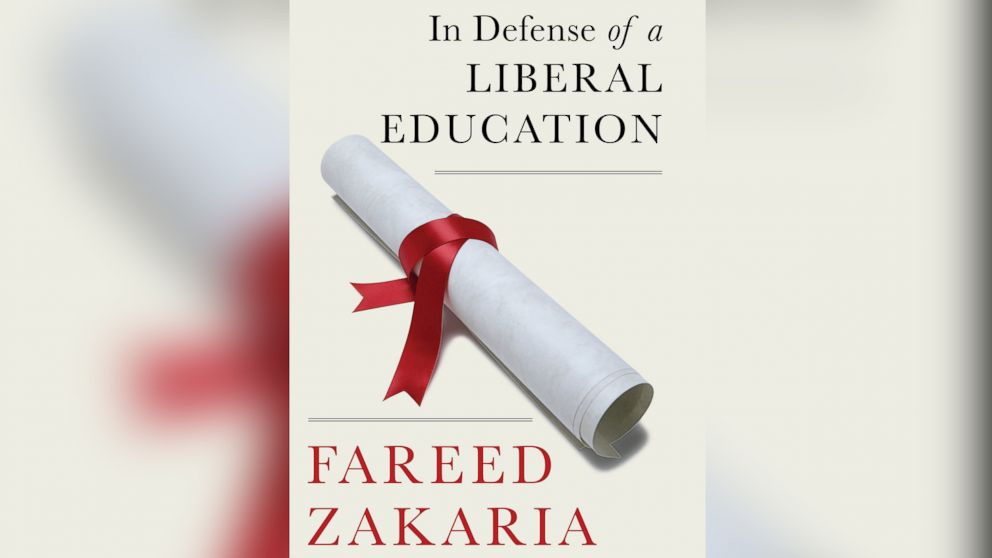Book Excerpt: 'In Defense of a Liberal Education' by Fareed Zakaria
Read an excerpt from 'In Defense of a Liberal Education' by Fareed Zakaria.

— -- [Fareed Zakaria joins the "This Week" roundtable Sunday.]
Excerpted from In Defense of a Liberal Education by Fareed Zakaria. Copyright © 2015 by Kastella Rylestone, LLC. With permission of the publisher, W. W. Norton & Company, Inc. All rights reserved.
If you want to live a good life these days, you know what you’re supposed to do. Get into college but then drop out. Spend your days learning computer science and your nights coding. Start a technology company and take it public. That’s the new American dream. If you’re not quite that adventurous, you could major in electrical engineering.
What you are not supposed to do is study the liberal arts. Around the world, the idea of a broad-based “liberal” education is closely tied to the United States and its great universities and colleges. But in America itself, a liberal education is out of favor. In an age defined by technology and globalization, everyone is talking about skills-based learning. Politicians, businesspeople, and even many educators see it as the only way for the nation to stay competitive. They urge students to stop dreaming and start thinking practically about the skills they will need in the workplace. An open-ended exploration of knowledge is seen as a road to nowhere.
A classic liberal education has few defenders. Conservatives fume that it is too, well, liberal (though the term has no partisan meaning). Liberals worry it is too elitist. Students wonder what they would do with a degree in psychology. And parents fear that it will cost them their life savings.
This growing unease is apparent in the numbers. As college enrollment has grown in recent decades, the percentage of students majoring in subjects like English and philosophy has declined sharply. In 1971, for example, 7.6 percent of all bachelor’s degrees were awarded in English language and literature. By 2012, that number had fallen to 3.0 percent. During the same period, the percentage of business majors in the undergraduate population rose from 13.7 to 20.5.
Some believe this pattern makes sense—that new entrants into higher education might simply prefer job training to the liberal arts. Perhaps. But in earlier periods of educational expansion, this was not the case. In the 1950s and 1960s, for instance, students saw college as more than a glorified trade school. Newcomers, often from lower-middle-class backgrounds and immigrant families with little education, enthusiastically embraced the liberal arts. They saw it as a gateway to a career, and also as a way to assimilate into American culture. “I have to speak absolutely perfect English,” says Philip Roth’s character Alex Portnoy, the son of immigrants and hero of the novel Portnoy’s Complaint. Majors like English and history grew in popularity precisely during the decades of mass growth in American higher education.




